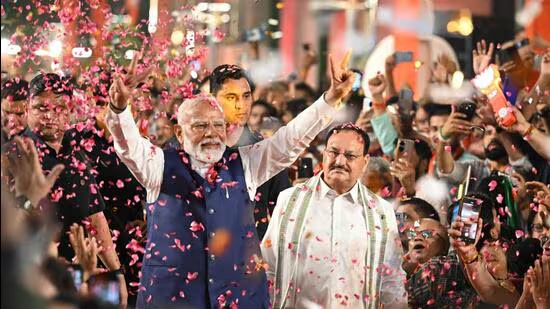Following the results of the 2024 Indian general elections, the Bharatiya Janata Party (BJP) has successfully secured a mandate for a third consecutive term under Prime Minister Narendra Modi. As the BJP prepares to form the Modi 3.0 government, the role of its National Democratic Alliance (NDA) coalition partners becomes crucial. Should the BJP trust its coalition partners and accommodate their demands? This decision is pivotal for the stability and effectiveness of the new government.
The 2024 Electoral Outcome
The BJP-led NDA coalition has once again demonstrated its electoral prowess, winning a significant number of seats and ensuring a stable government. The alliance’s victory underscores the electorate’s continued trust in Modi’s leadership and the development-oriented policies of the BJP. However, the political landscape remains dynamic, with various regional parties playing essential roles within the NDA.
Historical Context and Coalition Politics
Historically, coalition politics in India has been marked by a mix of cooperation and contention. The NDA, under Modi’s leadership, has managed to maintain a relatively cohesive front despite occasional disagreements among its constituents. The 2024 victory reaffirms the importance of coalition politics in India’s parliamentary democracy, where regional parties contribute to the national agenda.
Trusting Coalition Partners
- Strengthening the Coalition: Trusting coalition partners is essential for maintaining a united front. The BJP needs to acknowledge the contributions and significance of regional parties within the NDA. By accommodating their demands, the BJP can ensure continued support and avoid the risk of defections or discontent that could weaken the alliance.
- Inclusive Governance: Accommodating the demands of coalition partners can lead to more inclusive governance. Regional parties often bring local issues and perspectives to the national stage, enriching the policy-making process. By addressing these demands, the BJP can create policies that are more reflective of India’s diverse socio-political landscape.
- Political Stability: Trusting and accommodating coalition partners is crucial for political stability. Stable alliances ensure smooth functioning of the government, enabling it to focus on governance and development rather than managing internal conflicts. This stability is particularly important as the BJP aims to implement its ambitious agenda in Modi’s third term.
Challenges and Considerations
- Balancing Interests: While accommodating coalition partners is important, the BJP must balance these interests with its national agenda. Excessive concessions might dilute the party’s core policies and alienate its voter base. Strategic negotiation and clear communication are necessary to maintain this balance.
- Managing Conflicts: Coalition politics inevitably involves managing conflicts and disagreements. The BJP needs to establish effective mechanisms for conflict resolution within the NDA, ensuring that disagreements do not escalate into larger issues that could threaten the alliance’s stability.
- Maintaining Leadership: The BJP, as the leading party in the NDA, must maintain its leadership role while being receptive to its partners’ demands. This involves a delicate balance of asserting its policy priorities and being flexible enough to incorporate the needs of its allies.
Strategic Steps Forward
- Regular Consultations: Establishing regular consultations with coalition partners can foster a sense of inclusion and collective decision-making. This approach can preempt potential conflicts and ensure that all partners feel valued and heard.
- Power Sharing: Thoughtful power sharing, including key ministerial positions and important portfolios, can demonstrate the BJP’s commitment to a collaborative approach. This can strengthen the alliance and enhance the overall effectiveness of the government.
- Focus on Common Goals: Emphasizing common goals and shared visions can unite the coalition partners. By highlighting areas of mutual interest, the BJP can rally its allies around a cohesive and compelling agenda.
- Transparent Communication: Maintaining transparent communication channels with coalition partners is crucial. Open dialogue can prevent misunderstandings and build trust, ensuring that all parties are on the same page regarding policy decisions and political strategies.
Conclusion
As the BJP prepares to form the Modi 3.0 government, trusting and accommodating its NDA coalition partners is essential for ensuring political stability and effective governance. While this approach involves navigating challenges and balancing various interests, the benefits of a cohesive and united alliance are significant. By fostering inclusive governance, maintaining political stability, and focusing on common goals, the BJP can lead the NDA to continued success and drive India’s development agenda forward in the coming term.





